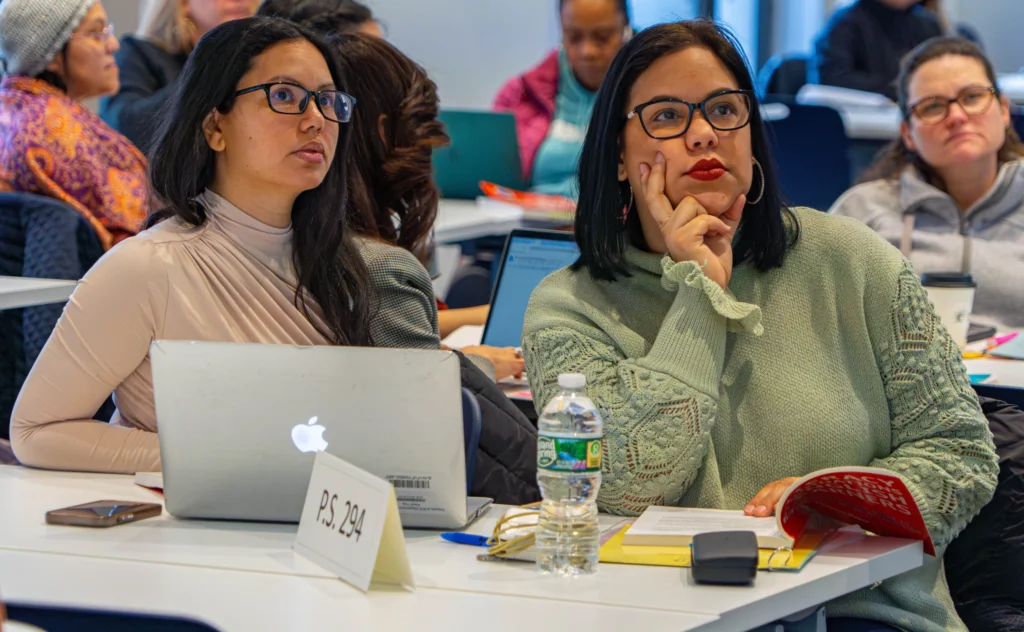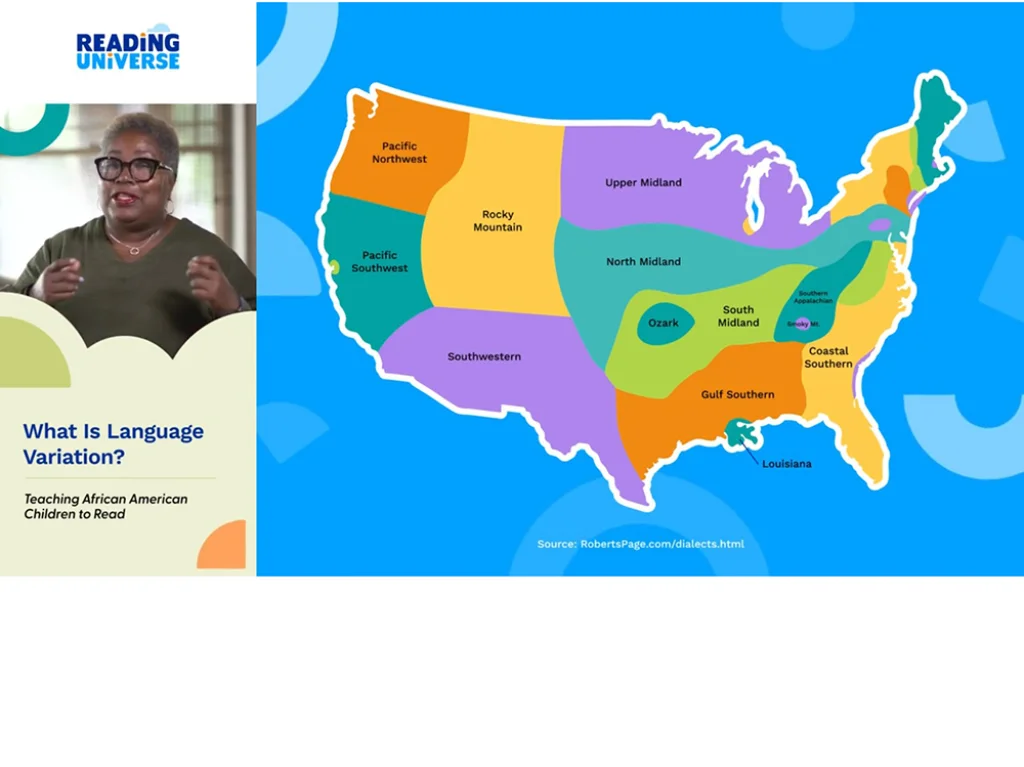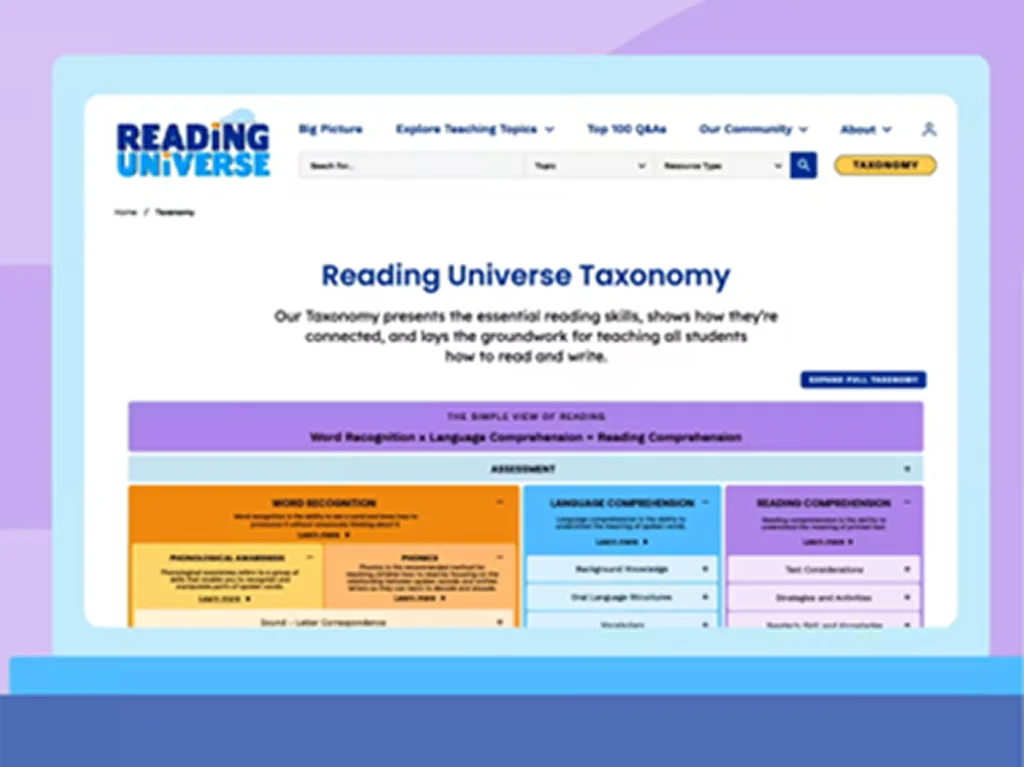The Big Picture: Reading Research and Teacher Learning
How are we doing with teaching children to read and write? Why do so many children struggle? What can we learn from research to improve classroom instruction? This section offers some background and context about the big picture.

-
![two teachers in a professional development session on teaching reading with English learners]() Explore the Research
Explore the ResearchReading Research Overview
Literacy is an incredibly well-studied field. Here's an overview of what we've learned over decades of research.
-
![Screenshot of Dr. Washington and a map of the U.S.]() See the Videos
See the VideosTimely Talks with Experts
These in-depth videos explore critical topics in literacy instruction. Watch nationally recognized experts explain the science behind how children learn to read and offer advice for applying it in the classroom.
-
![graphic image of taxonomy]() Learn More
Learn MoreKey Instructional Concepts
What is "structured literacy"? What is "orthographic mapping"? Learn about key concepts and terms related to research-based reading and writing instruction.
Why It Matters
Reading Universe adviser Kareem Weaver believes that “literacy is the fundamental civil right of our time.” He explains why every child needs explicit teaching when it comes to learning to read.

Hide Video Transcript
Show Video Transcript
Hi, I'm Kareem Weaver. I've been living with the reading crisis for my whole career. First as a teacher, then as a principal in Oakland Unified City Schools. Now as an advocate for teachers and kids with the NAACP, where we promote social justice for all children and protect their civil rights. In all that work, my goal has been the same. What can we do to get the greatest number of kids reading and writing professionally? Helping more kids learn to read is cause of my lifetime. I've seen the pain that results when even a single child struggles with reading. On the flip side, I've seen the joy and pride that children feel when they do learn how to read and write well. My goal is to make sure that every child has a fair chance to experience that success. We can only solve our reading crisis if we give every teacher, in every school, in every district free instant access to authoritative and media rich information about what it really takes to teach reading well. We really can make this work not just for the kids I love in Oakland, but for children all across the country, every race, every color, every creed.
10 Maxims: What We've Learned So Far About How Children Learn to Read
Over the last 50 years, there's been a vast outpouring of research about reading development. Dr. G. Reid Lyon, a research scientist and neuropsychologist who oversaw the reading research program at the National Institutes of Health, distills the most essential findings into 10 maxims all teachers should know.

Reading Universe is made possible by generous support from Jim & Donna Barksdale; the Hastings/Quillin Fund, an advised fund of the Silicon Valley Community Foundation (opens in new window); the AFT (opens in new window); the Emily Hall Tremaine Foundation (opens in new window); and three anonymous donors.



